
Acute Care Certified: Why Sentara Partnered Up
The day that Joy MacMichael (CERTI '22) saw the cardiology patient
$120K
Sentara's per-cohort cost for its NPs in the acute-care certification program - "Money well spent," said Mary Morin
—an older woman who’d been told she’d likely need a heart catheterization after presenting in the emergency department with heart failure, suspected cardiogenic shock, and a wicked cough—the nurse practitioner’s (NP) brain immediately returned to class.
They’d just attended a lecture on the different ways pneumonia manifests and discussed how aspiration could similarly cloud a chest X-ray. MacMichael, a family NP who works in Sentara’s cardiology department, urged the pulmonary team to slow down, step back, and queried the patient: Was she having any difficulty swallowing?
Nodding, the patient confirmed what MacMichael suspected. A swallowing study was ordered, and the catheterization procedure was canceled—all thanks to a topic her professors had presented the week before.
“We could have put this woman through a risky procedure,” noted MacMichael, “instead of focusing on other medical conditions and possibilities. That lesson was immediately relevant and made a difference in real-time.”
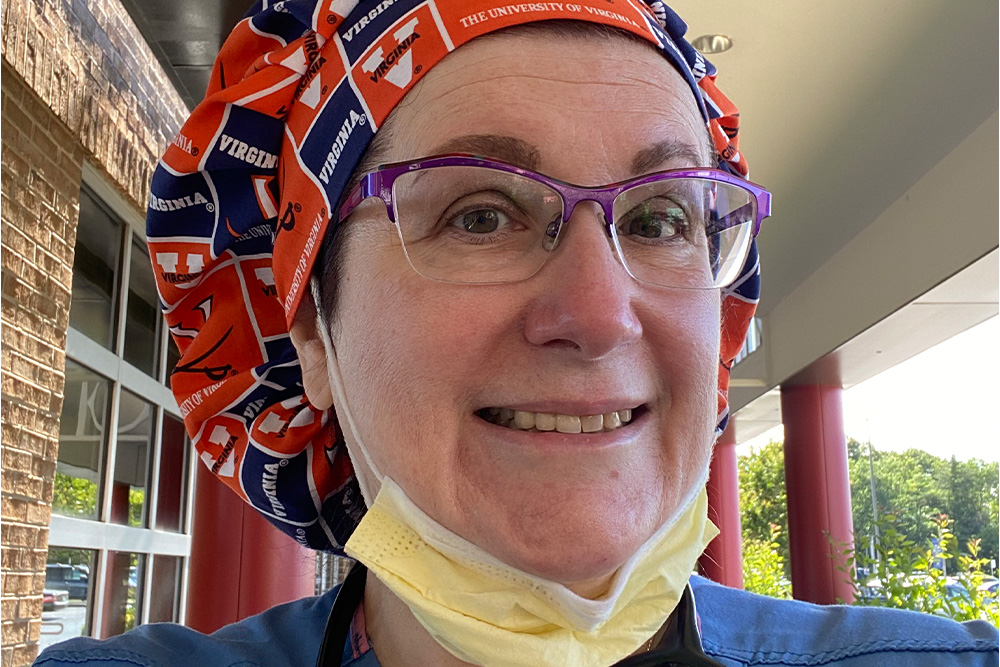
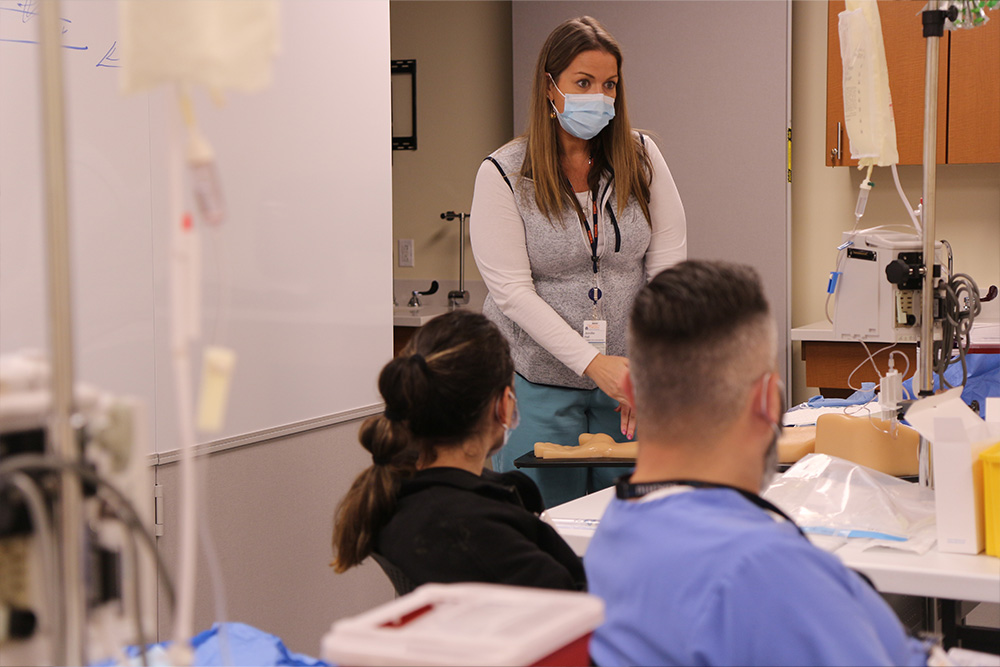
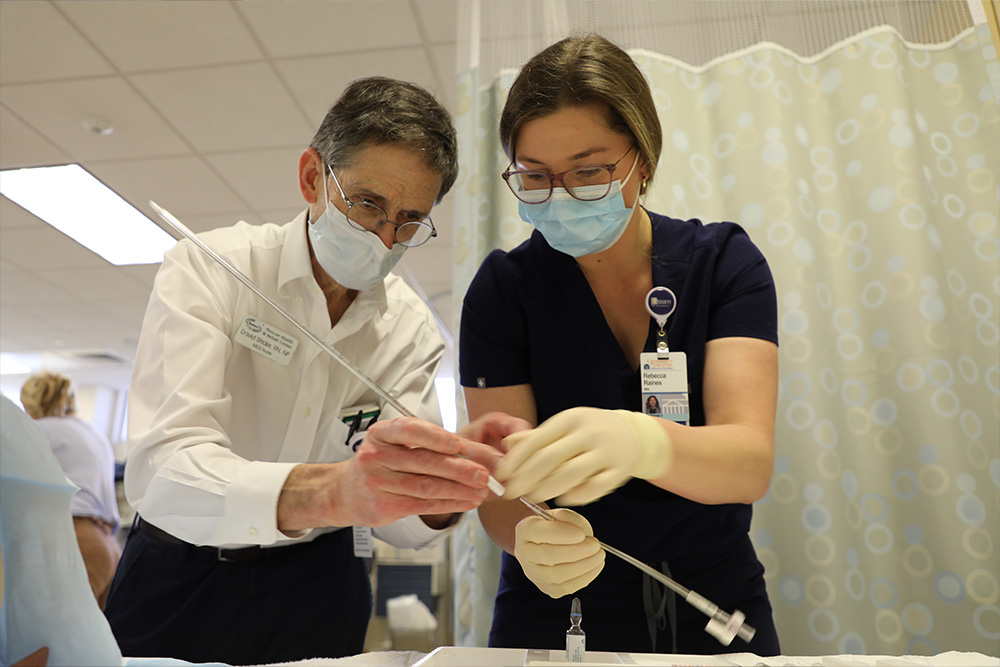
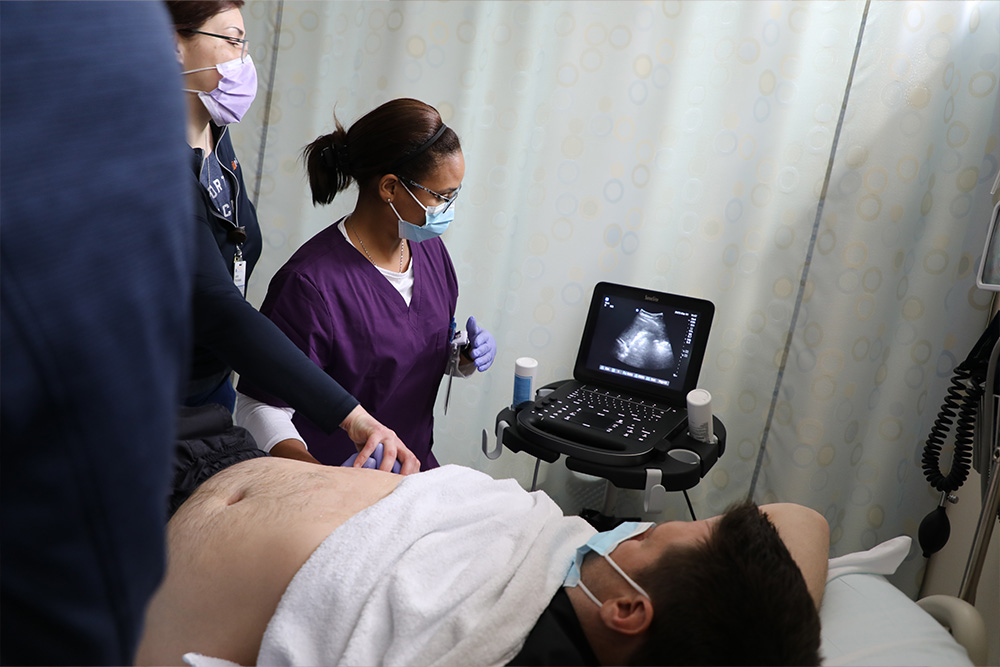
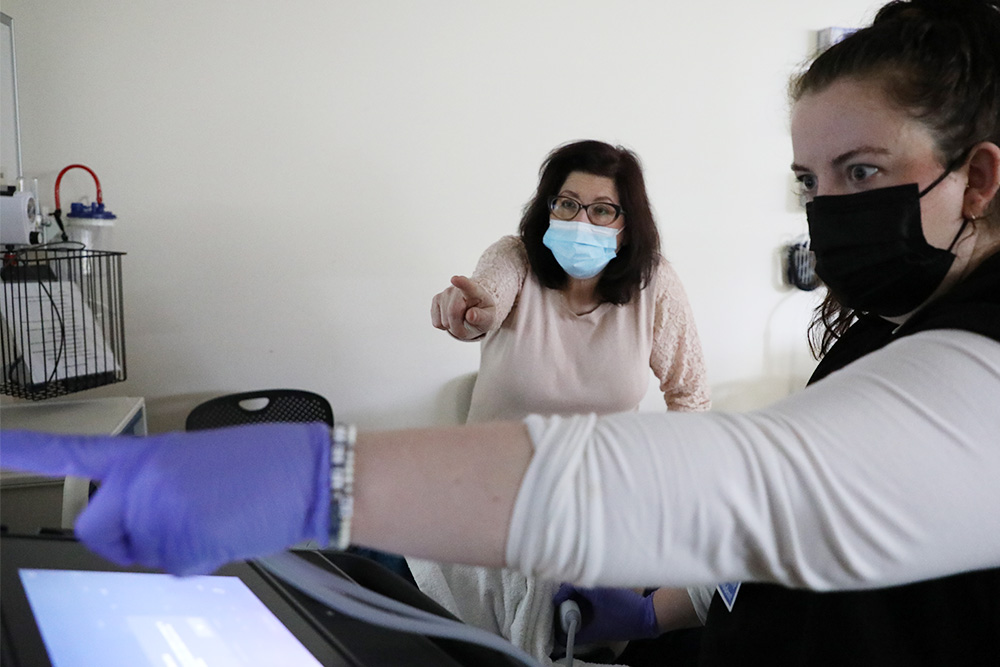
MacMichael is one of a half-dozen Sentara NPs who recently graduated from a year-long specialty pilot program created at UVA just for Sentara NPs wanting to earn acute care certification. Its goal, explained Mary Morin, Sentara Healthcare's vice president of clinical effectiveness and employee health services, is to ensure that every NP working in Sentara's acute care environments is properly certified and to improve quality, safety, outcomes, and retention at Sentara hospitals, too.
"Acute care education is important and verifies that you have the skills and knowledge to function safely in these environments," Morin explained. "I have a strong interest in NPs being able to help care for patients in the hospital environment and be full partners with our physicians. [Acute care certification is] a great model; it's the right model, and nurses bring something special to the table."
It was in 2021 when Sentara established the rule that all newly hired NPs working in acute care environments must be acute care certified. Though staff NPs who'd specialized in other areas were grandfathered in, they were offered another option, too: apply for UVA's yearlong pilot program, developed by associate professor Clareen Wiencek, director of advanced practice nursing programs, and associate professor Jill Howie-Esquivel, the acute care NP program director, and earn an acute care certificate. Sentara would foot the bill for tuition, books, travel, and meals, the School would create the curriculum and organize clinical placements, and the students—all full-time working nurses and part-time students who committed to attend a once-a-week online class and a monthly in-person day in Charlottesville—would do the rest.
This return to graduate school felt different for family NP Meaghan DeHart (CERTI '22).
“I have nothing but good things to say. It’s really been excellent and is opening up new doors for me in my career here at Sentara.”
DNP student Janice Lavoie, a Sentara NP from Woodbridge, Va., who earned acute care certification in December `22
“Before, I only had bedside nursing experience to base things on,” said DeHart, who works in cardiothoracic surgery at Sentara’s Norfolk General Heart Hospital and Virginia Beach locations. “It was a lot of memorizations and trying to imagine how I’d apply concepts without ever having encountered them. The program offered a lot of refreshers with immediate application, and some new education outside my current specialty: ‘Oh, I remember this; this is why we do this; this makes sense.’ It’s making those connections, and having the confidence to know, ‘OK, we learned about this in school.’”
While the program offered NPs experience with specialties beyond their day-to-day—a cardiac NP working in emergency medicine or neurology, for example—they said it also made them better at their day jobs in real time.
“Working in urology, the patient care approach is more focused on the surgical problem and can be a bit tunnel-visioned,” said Janice Lavoie (CERTI ’22), a NP who works in urology at Sentara’s Woodbridge, Va., hospital. “The opportunity to rotate with the hospitalist team has definitely broadened my knowledge and increased my confidence.”
For some, the acute care pilot has even whetted their appetite for further study. Lavoie begins the DNP program this fall.
“These nurses are role models for advanced practice. UVA has made them feel really special, too, and Clareen and Jill have really made the students feel well cared for and provided tremendous support of them. That makes all the difference in the world.”
Mary Morin, vice president of clinical effectiveness, Sentara Health
“I have nothing but good things to say,” said Lavoie. “It’s really been excellent and is opening up new doors for me in my career here at Sentara.”
After the first cohort of six graduates earned their acute care certifications in December 2022, Morin—who said Sentara has 40 more NPs who are eligible to apply for the yearlong, part-time program—is encouraging more NPs to step forward. This spring, a second cohort of seven began their yearlong journey to acute care certification.
Each cohort costs Sentara about $120,000, funds Morin called “money well spent.”
“These nurses are role models for advanced practice,” Morin said. “UVA has made them feel really special, too, and Clareen and Jill have really made the students feel well cared for and provided tremendous support of them. That makes all the difference in the world.”

No tags found!
